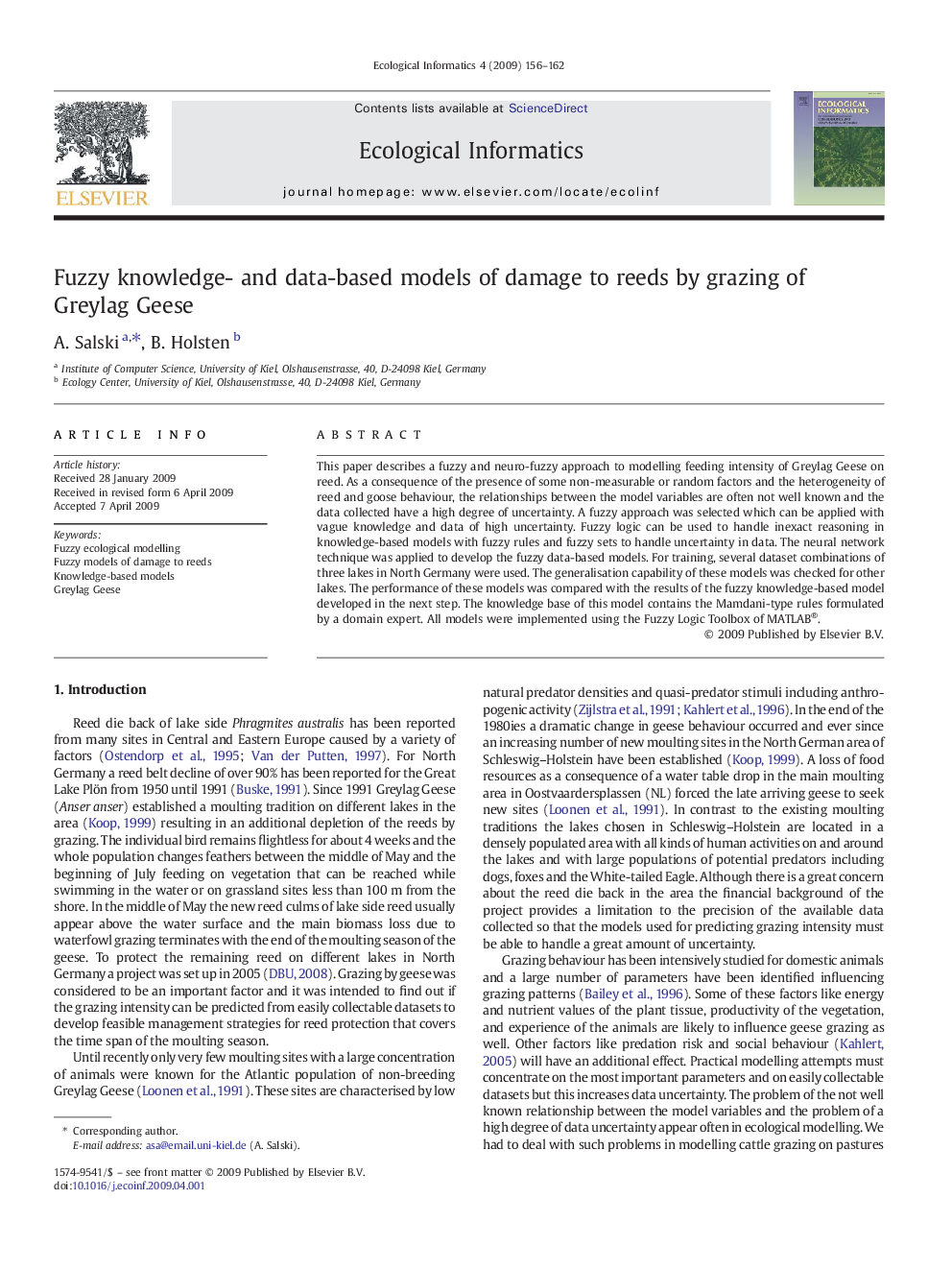| Article ID | Journal | Published Year | Pages | File Type |
|---|---|---|---|---|
| 4375184 | Ecological Informatics | 2009 | 7 Pages |
Abstract
This paper describes a fuzzy and neuro-fuzzy approach to modelling feeding intensity of Greylag Geese on reed. As a consequence of the presence of some non-measurable or random factors and the heterogeneity of reed and goose behaviour, the relationships between the model variables are often not well known and the data collected have a high degree of uncertainty. A fuzzy approach was selected which can be applied with vague knowledge and data of high uncertainty. Fuzzy logic can be used to handle inexact reasoning in knowledge-based models with fuzzy rules and fuzzy sets to handle uncertainty in data. The neural network technique was applied to develop the fuzzy data-based models. For training, several dataset combinations of three lakes in North Germany were used. The generalisation capability of these models was checked for other lakes. The performance of these models was compared with the results of the fuzzy knowledge-based model developed in the next step. The knowledge base of this model contains the Mamdani-type rules formulated by a domain expert. All models were implemented using the Fuzzy Logic Toolbox of MATLAB®.
Keywords
Related Topics
Life Sciences
Agricultural and Biological Sciences
Ecology, Evolution, Behavior and Systematics
Authors
A. Salski, B. Holsten,
